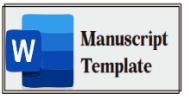ANALISIS PENGENDALIAN PENYALAHGUNAAN AKAD WAKALAH PADA PRODUK PEMBIAYAAN MURABAHAH DI BMT SE-KABUPATEN JEPARA
Abstract
Keywords
Full Text:
PDF (Bahasa Indonesia)References
Al-Hasan, F. A. (2013). Analisis Pelaksanaan Akad Murabahah di Lembaga Mikro Keuangan Syariah (BMT). Bandung: UIN SGD Bandung.
Al-Jambi, Abu M. D. K. (2011). Selamat Tinggal Bank Konvensional. Jakarta: Tifa Publishing House.
Antonio, M. S. (2011). Bank Syariah dari Teori ke Praktik. Jakarta: Gema Insani.
Ayub, M. (2009). Understanding Islamic Finance. Jakarta: Gramedia Pustaka Utama.
Dewan Syariah Nasional. (2006). Himpunan Fatwa Dewan Syariah Nasional. Jakarta: CV. Gaung Persada.
Fahimah, N. et., al. (2011). Risiko-Risiko dalam Kewangan Semesta: Penilaian Daripada Persepektif. Jurnal International Conference On Management (ICM 2011) Proceeding, 1.
Hakim, A. A. (2011). Fiqih Perbankan Islam. Bandung: Refika Aditama.
Karim, A. A. (2015). Bank Islam Analisis Fiqh dan Keuangan. Jakarta: PT. Raja Grafindo Persada.
Kasmir. (2010). Dasar-dasar Perbankan. Jakarta: Raja Grafindo Persada.
Moleong, L. J. (2012). Metodologi Penelitian Kualitatif. Bandung: Remaja Rosdakarya.
Muhammad. (2009). Model-Model Akad Pembiayaan di Bank Syariah. Yogyakarta: UII Pres Yogyakarta.
Rahmawaty, A. (2007). Tinjauan Kritis Produk Murabahah dalam Perbankan Syari’ah di Indonesia. Jurnal Ekonomi Islam, Ekonomi Syari’ah, 1(2), 196.
Sugiyono. (2013). Metode Penelitian Pendidikan Pendekatan Kuantitatif, Kualitatif dan R & D. Bandung: Alfabeta.
Suhendi, H. (2010). Fiqh Muamalah. Jakarta: Rajawali Press
Supriyadi, A. (2008). Sistem Pembiayaan Berdasarkan Prinsip Syari’ah (Suatu Tinjauan Yuridis terhadap Praktik Pembiayaan di Perbankan Syari’ah di Indonesia). AlMawarid, 10, 43.
Syafei, R. (2011). Fiqh Muamalah. Bandung: Pustaka Setia
Yasin, M. N. (2009). Hukum Ekonomi Islam. Malang: UIN Malang Press.
DOI: http://dx.doi.org/10.15548/al-masraf.v4i2.219
Refbacks
- There are currently no refbacks.

This work is licensed under a Creative Commons Attribution-NonCommercial-ShareAlike 4.0 International License.
View My Stats

